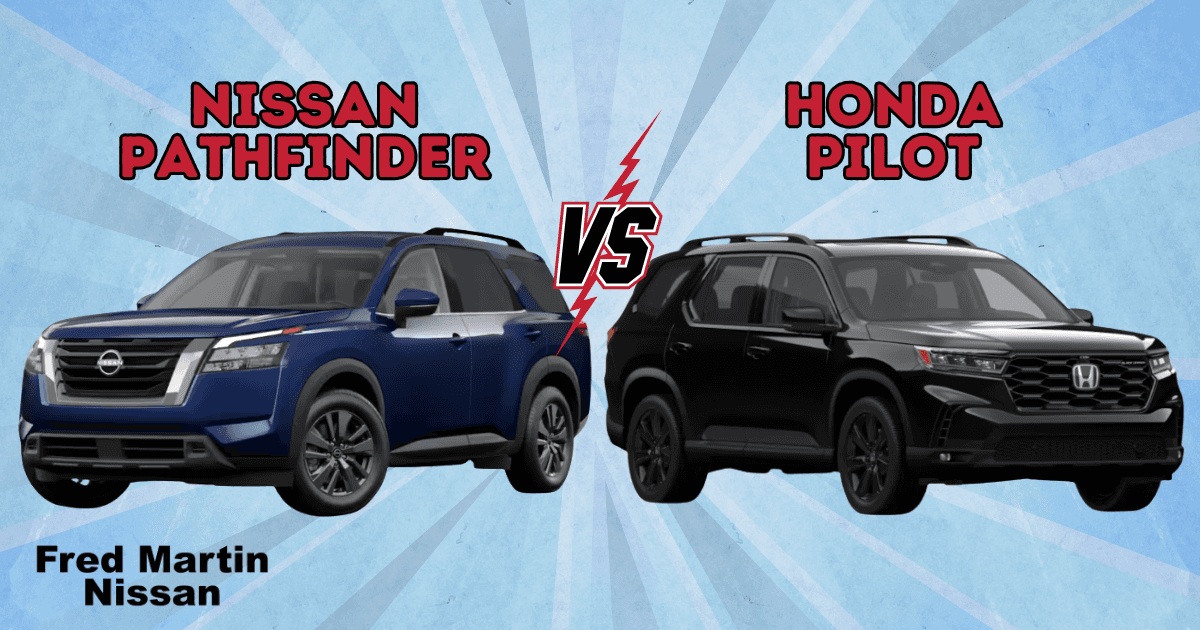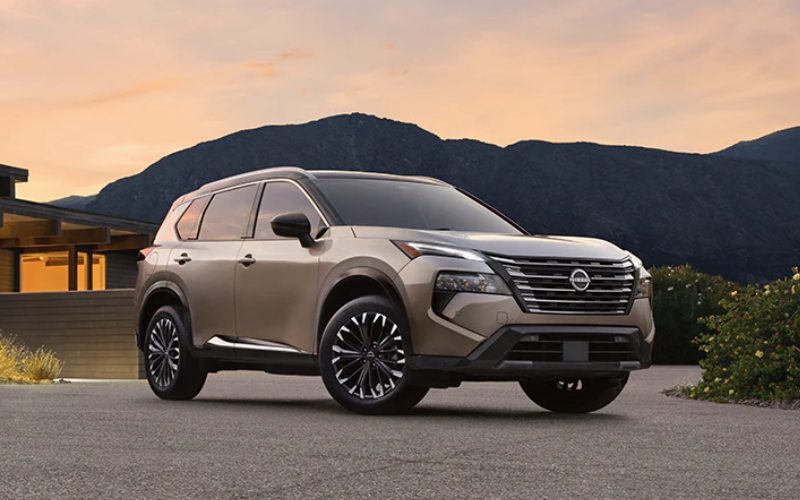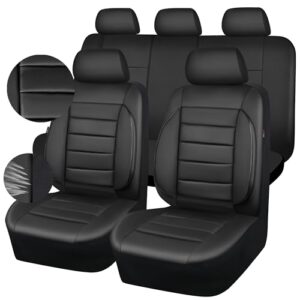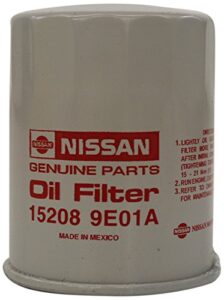As an Amazon Associate, I earn from qualifying purchases
Choosing between Nissan and Honda can feel overwhelming. Both brands offer reliable cars, but which one truly fits your needs?
You want a vehicle that matches your lifestyle, budget, and driving preferences. This article will help you see the key differences clearly, so you can make a confident choice. Keep reading to discover which brand gives you the best value, comfort, and performance for your money.
Your next car decision starts here.
Brand Reputation
Brand reputation shapes how people view Nissan and Honda. It affects trust, buying decisions, and long-term satisfaction. Both brands have strong names in the car world. Each has strengths in different areas that matter to buyers.
Reliability And Durability
Honda is known for making reliable cars that last long. Many drivers report fewer breakdowns with Honda models. Nissan also builds durable cars but sometimes faces mixed reviews on reliability. Regular maintenance helps both brands perform well over time.
Customer Satisfaction
Honda scores high in customer happiness surveys. Buyers often praise Honda for comfort and smooth driving. Nissan customers enjoy good value and innovative features. Both brands listen to feedback and improve their models each year.
Resale Value Trends
Honda cars tend to keep their value well over time. This makes them a smart choice for resale. Nissan vehicles usually have lower resale values but offer affordable prices upfront. Tracking resale trends helps buyers make smarter decisions.
Model Lineup
Nissan and Honda both offer a wide range of vehicles. Their model lineups cover different needs. From small cars to bigger SUVs, each brand has options. This section looks at key models from both brands.
Popular Sedans And Hatchbacks
Nissan has the Sentra and Altima for sedan lovers. The Sentra is affordable and good for city drives. Altima offers more space and power. Nissan’s Versa is a budget-friendly small car. For hatchbacks, Nissan offers the Versa Note.
Honda’s sedan lineup includes the Civic and Accord. The Civic is a small, sporty car. Accord is bigger and more comfortable. Both have good fuel economy. Honda’s hatchback option is the Civic Hatchback. It combines style and function well.
Suv And Crossover Options
Nissan has the Rogue, a popular compact SUV. It offers space and safety features. The Murano is a midsize SUV with a smooth ride. Nissan’s Pathfinder is larger, good for families.
Honda’s top SUVs include the CR-V and Passport. The CR-V is a small SUV with good mileage. Passport is larger and more powerful. Honda also offers the Pilot, a big SUV for seven passengers.
Electric And Hybrid Choices
Nissan is known for the Leaf, one of the first electric cars. It is affordable and easy to drive. Nissan also offers hybrid versions in some models.
Honda focuses more on hybrids. The Insight is a hybrid sedan with good fuel savings. Honda’s Clarity series has plug-in hybrid and electric models. The CR-V Hybrid adds an eco-friendly SUV choice.
Performance And Efficiency
Performance and efficiency are key factors for car buyers. Both Nissan and Honda offer strong choices. Their cars deliver solid power and good fuel savings. Understanding their engines and ride quality helps decide which suits your needs.
Let’s explore how Nissan and Honda compare in engine options, fuel economy, and driving comfort.
Engine Options And Power
Nissan provides a range of engines from small four-cylinders to strong V6s. Their turbocharged options add extra power for faster acceleration. Honda also offers efficient four-cylinders and powerful V6 engines. Honda’s engines often focus on smooth delivery and quick response. Both brands deliver reliable power for daily driving and highway use.
Fuel Economy
Honda tends to lead in fuel efficiency across many models. Their engines use advanced technology to save gas. Nissan also offers competitive fuel economy, especially with their newer models. Hybrids from both brands push efficiency even further. Choosing between them depends on your driving habits and model choice.
Handling And Ride Comfort
Nissan vehicles usually provide a comfortable ride with stable handling. Their suspension absorbs bumps well for smooth trips. Honda cars often feel sportier with sharper steering. This gives a more engaging driving experience. Both brands balance comfort and control, making daily driving enjoyable.

Credit: www.fredmartinnissan.com
Technology And Features
Technology and features play a big role in choosing between Nissan and Honda. Both brands offer smart systems that make driving easier and safer. The technology also keeps passengers entertained and connected. Let’s explore what each brand offers in infotainment, safety, and driver assistance.
Infotainment Systems
Nissan provides user-friendly touchscreen displays with Apple CarPlay and Android Auto. The interface is simple and responds quickly. Some Nissan models include a Wi-Fi hotspot for internet access on the go. Honda’s infotainment also supports Apple CarPlay and Android Auto. It offers clear graphics and easy navigation through menus. Honda often includes a multi-angle rearview camera for better parking views. Both brands keep you connected and entertained during drives.
Safety Technologies
Nissan’s safety tech includes automatic emergency braking and blind-spot warning. These features help avoid accidents and increase driver awareness. Honda offers a similar set called Honda Sensing. It features collision mitigation braking and road departure mitigation. Both brands use advanced sensors and cameras for safety. These technologies protect drivers and passengers on every trip.
Driver Assistance Features
Nissan offers adaptive cruise control that keeps a safe distance from other cars. It also includes lane departure warning to prevent unintentional lane changes. Honda’s driver assistance includes lane keeping assist and traffic sign recognition. These help reduce driver stress on long trips. Both brands add convenience and support for safer driving.
Pricing And Value
Choosing between Nissan and Honda means thinking about price and value. Price affects your budget. Value shows what you get for your money. Both brands offer good choices. Comparing their pricing helps you find the best fit for you.
Base Price Comparison
Nissan and Honda start with prices that suit many buyers. Nissan often has a slightly lower base price. Honda’s base models may cost a bit more. Still, both brands provide reliable cars at fair prices. The difference usually depends on the model you choose.
Trim Levels And Upgrades
Both brands offer several trim levels. These trims add features and style. Nissan’s trims tend to focus on comfort and tech options. Honda’s trims often emphasize performance and safety features. Upgrades cost more but add value to your car. You can pick trims that fit your needs and budget.
Cost Of Ownership
Owning a car means more than the purchase price. Maintenance, fuel, and insurance affect total cost. Honda usually has slightly lower repair costs. Nissan parts are affordable but may need more service visits. Fuel efficiency is similar for both brands. Insurance rates depend on your location and driving history.
Warranty And Maintenance
Warranty and maintenance are key factors in choosing a car. They protect you from unexpected costs. Both Nissan and Honda offer solid options. Understanding their warranty and maintenance services helps you decide better.
Warranty Coverage Details
Nissan offers a basic warranty of 3 years or 36,000 miles. Their powertrain warranty lasts 5 years or 60,000 miles. Honda provides a basic warranty of 3 years or 36,000 miles as well. Their powertrain warranty extends to 5 years or 60,000 miles. Both brands cover corrosion and roadside repairs under warranty.
Scheduled Maintenance Plans
Nissan includes some scheduled maintenance for the first 2 years or 24,000 miles. This covers oil changes and tire rotations. Honda offers a maintenance plan for 3 years or 36,000 miles. It covers oil, tire rotation, and inspections. Regular maintenance keeps the car running smoothly and avoids costly repairs.
Roadside Assistance
Nissan provides roadside assistance for 5 years or 60,000 miles. This service includes towing, flat tire changes, and lockout help. Honda offers roadside assistance for 3 years or 36,000 miles. Their service covers similar benefits like towing and emergency fuel delivery. Roadside assistance adds peace of mind during travel.
Driving Experience
The driving experience plays a key role in choosing between Nissan and Honda. It affects how you feel every time you get behind the wheel. Comfort, noise, and overall feel matter a lot. This section explores these aspects to help you decide which brand suits you best.
Comfort And Interior Quality
Nissan and Honda both offer good comfort. Nissan seats tend to be soft and supportive. Honda focuses on firm, ergonomic seating. Interior materials in Honda feel slightly more refined. Nissan uses durable materials that hold up well. Both brands provide ample legroom and headspace. Controls and displays are easy to reach and read.
Noise And Vibration Levels
Honda cars are known for quieter cabins. Engine and road noise stay low at most speeds. Nissan vehicles sometimes let in more road noise. Vibrations are minimal in both brands. Honda often uses extra soundproofing in newer models. This adds to a peaceful drive, especially on highways.
User Reviews And Ratings
Many drivers praise Honda for smooth handling and quiet rides. Nissan owners mention comfort and easy steering. Both brands receive high marks for reliability and fuel economy. Some users prefer Honda’s sharper steering feel. Others enjoy Nissan’s relaxed driving style. Reviews show both brands meet the needs of everyday drivers.

Credit: www.nissanofhampton.com
Environmental Impact
Both Nissan and Honda focus on reducing their environmental impact. They work hard to make cars that are cleaner and use less fuel. This helps protect the planet and lowers pollution. Understanding their efforts helps buyers choose a greener car.
Emissions And Eco-friendly Models
Nissan and Honda produce cars with lower emissions. Nissan offers the Leaf, a fully electric car with zero tailpipe emissions. Honda has the Clarity series, including electric and hydrogen fuel cell models. These cars cut down harmful gases that cause air pollution.
Both brands meet strict global standards for emissions. They also sell hybrids that combine gas engines with electric motors. Hybrids reduce emissions compared to regular gasoline cars. This helps reduce the carbon footprint of drivers.
Fuel Efficiency Initiatives
Nissan and Honda build many fuel-efficient vehicles. They use advanced engine technology to save fuel. Smaller engines with turbochargers give more power with less gas. Both brands offer hybrids that improve miles per gallon.
They also use lightweight materials to make cars lighter. Lighter cars need less fuel to run. This means fewer emissions and less pollution. These steps help drivers save money on fuel and help the environment.
Sustainability Efforts
Nissan and Honda work on sustainability beyond cars. They use renewable energy in factories to reduce carbon emissions. Both companies aim to recycle more materials in production. They focus on making parts that last longer and are easier to recycle.
They also invest in battery recycling programs. This reduces waste and limits harm to the environment. Their goal is to create a cleaner, greener future for all.

Credit: www.youtube.com
Frequently Asked Questions
Which Brand Offers Better Fuel Efficiency, Nissan Or Honda?
Honda generally provides better fuel efficiency across most models compared to Nissan.
Are Nissan Or Honda Cars More Reliable For Daily Use?
Honda cars are often rated higher for long-term reliability than Nissan vehicles.
How Do Nissan And Honda Compare In Safety Features?
Both brands offer strong safety features, but Honda often scores slightly better in crash tests.
Which Brand Has Lower Maintenance Costs, Nissan Or Honda?
Nissan usually has lower maintenance costs, but Honda repairs tend to last longer.
Do Nissan Or Honda Vehicles Hold Their Resale Value Better?
Honda vehicles typically retain higher resale value than Nissan models over time.
Which Brand Offers A Better Driving Experience, Nissan Or Honda?
Honda cars are known for smooth rides and responsive handling compared to Nissan.
Conclusion
Choosing between Nissan and Honda depends on your needs and budget. Both brands offer reliable cars with good features. Nissan often focuses on style and technology. Honda is known for fuel efficiency and strong resale value. Think about what matters most: comfort, price, or performance.
Test drive models from both to feel the difference yourself. This helps you pick the best fit for daily driving. In the end, either brand can serve you well. Your decision should match your lifestyle and preferences.
As an Amazon Associate, I earn from qualifying purchases


